EU Military Assistance Mission helps build capacity for over 500 troops in first year of operations ...
Mozambique Elections | With a queue ticket number in hand: Two hours after poll closing time, some were still able to vote… others weren’t as fortunate
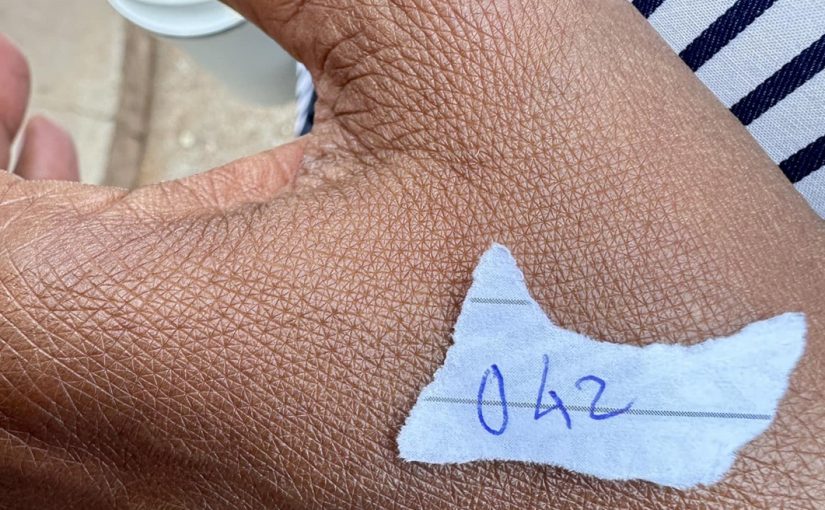
Image: Muday Madidiane Tchambule/Facebook
Two hours after the polls closed in Mozambique, and after some moments of tension, the last voters were still voting in one of the schools in Maputo. Queue ticket numbers had been handed out to those who had arrived in time, and there was a great desire to vote.
“Don’t close the door,” shouted voters at the door of one of the six polling stations set up at Escola Secundária Noroeste 1, in the suburbs of Maputo, while a police officer tried to calm the spirits of the long and disorganised queue of those anxious to get in and vote.
It was already 7:00 pm – the polls officially closed at 6:00 pm – and voters resisted, enveloped by the darkness outside the school, with their voter cards and queue tickets in hand, the latter distributed by the polling station staff to all those who had arrived by the legally scheduled time.
Those who arrived late protested, shouting, pushing and even making threats, looking for a queue ticket number, while polling station staff, flashlights in hand, checked the numbers of those who finally went inside to vote.
“It’s only now that I’m managing to do it [vote],” said Castro Sardinha, 46 years old and currently unemployed. He was proud. It was after 7:00 p.m. and this was his third and final attempt to vote throughout the day, due to the high turnout he encountered, which seemed to grow by the hour.
“I’ve been here three times, going back and forth,” Sardinha described, before admitting, as he put away the voter card and the queue ticket number he had received: “I’m happy.”
A wait which, for him, had a special meaning: “We hope this changes. The despair is breaking the heart.”
Voting stations in the Mozambican general elections, including the election of the new President of the Republic, began to close at 6:00 p.m. It could be up to 15 days before the national results are known.
At the school in the Noroeste 1 neighbourhood, Castro’s long queue was shared by Manuel Taulo, a 34-year-old businessman who had arrived before daybreak. He held a queue ticket with the number 100 in his hand: “We are here in the queue exercising our right. We have hope.”
That hope came true one hour and forty minutes after the official poll closing time. It was 7:40 p.m. and dozens were still waiting in line for the same reason.
“There are a lot of people waiting here, a lot of people. They are surprised, because they want to exercise their right to vote,” Taulo admitted.
Dêncio Marques, a 28-year-old tailor, who also received a ticket to vote after hours because he had arrived, after leaving work, before the official closing. “A lot of people want to vote to see if things change,” he said, convinced that his time would come to get inside the classroom, which had, for the day, been converted into a polling station.
“We’re here in the queue and we’re almost there, and we’re going to vote,” he said as he was about to go inside.
Dânia Cossa, a 23-year-old professional athlete, wasn’t as fortunate. She went to help her family during the day and only returned home late in the afternoon, but she still tried.
“I looked at the time and saw that I could still come by,” she began by explaining. She arrived at the door of the classroom at 6:30 p.m., too late to get a queue ticket.
“I’m very sad about that. I came in hope,” she said, admitting her frustration at failing to vote for the first time: “Not a little bit [frustrated], but a lot, really. Because I so much wanted to [vote].”
Yesterday’s general elections included the seventh presidential elections – in which the current head of state, Filipe Nyusi, did not run for office, having reached the constitutional limit of two terms – simultaneously with the seventh legislative elections and the fourth elections for provincial assemblies and governors.
At the Escola Secundária Noroeste 1, the night-long process of counting the votes began after a long delay.
The candidates for President of the Republic in this election are Lutero Simango, supported by the Democratic Movement of Mozambique (MDM, the third parliamentary force); Daniel Chapo, with the support of the Liberation Front of Mozambique (Frelimo, in power since 1975); Venâncio Mondlane, supported by the extra-parliamentary Podemos party; and Ossufo Momade, with the support of the Mozambican National Resistance (Renamo, the largest opposition party).
The publication of the results of the presidential election by the National Elections Commission (CNE), if there is no second round, can take up to 15 days. They are then sent for validation by the Constitutional Council, which has no set deadline for proclaiming the official results.
The vote included elections for the national parliament (250 deputies) and for provincial parliaments and respective provincial governors, in this latter case with 794 mandates to be distributed. The CNE approved 35 political parties to run for the Assembly of the Republic, and 14 political parties and groups of citizens in voting for the provincial assemblies.
Apesar do encerramento oficial, ainda existem pessoas na fila em alguns pontos do país, como é o caso da Escola de básica de Namacula, em Niassa, na mesa 03, em que os eleitores já tem senhas. pic.twitter.com/4J6Eq4XMtk
— Plataforma_decide (@PDecide23) October 9, 2024




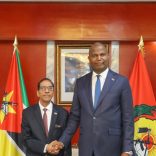
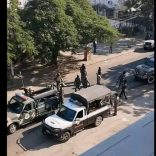
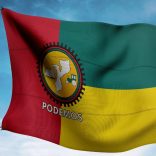
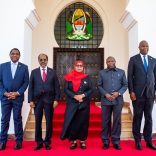




Leave a Reply
Be the First to Comment!
You must be logged in to post a comment.
You must be logged in to post a comment.